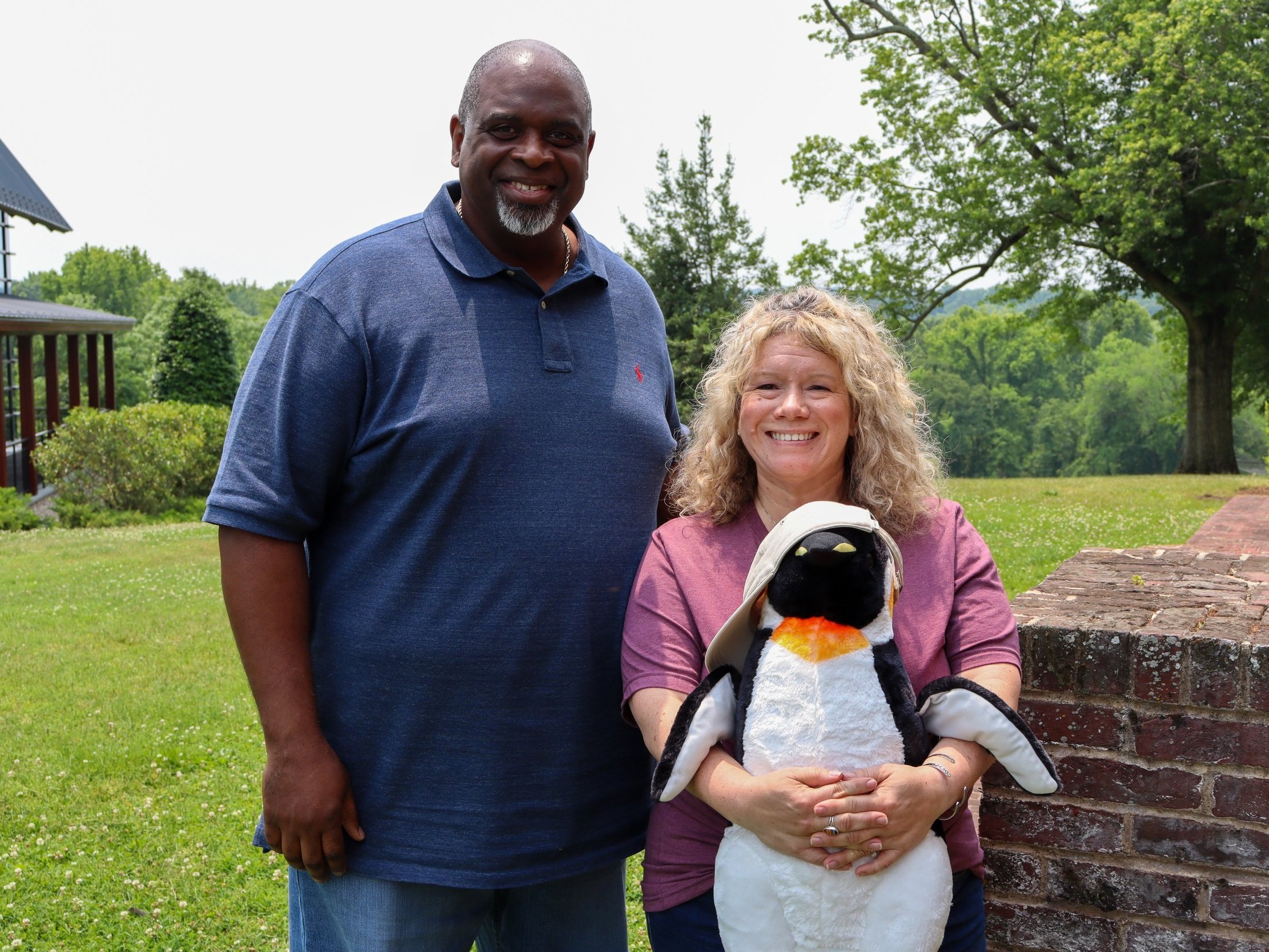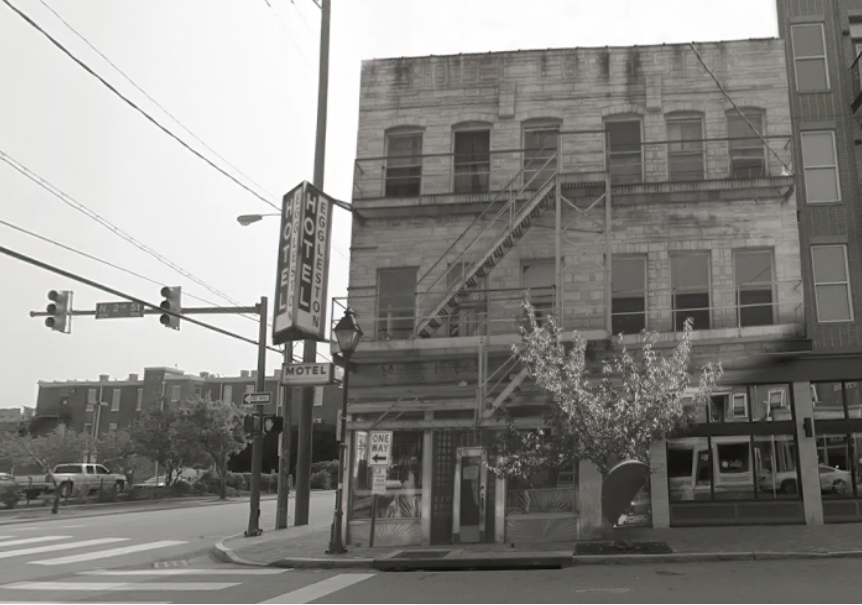Mission Elevation Success Stories: Beth Vann-Turnbull and Housing Families First
Beth Vann-Turnbull, Executive Director of Housing Families First, shares her experience with the Mission Elevation Program.
Three years into her position as Executive Director of Housing Families First, Beth Vann-Turnbull knew it was time to make drastic changes the organization's funding model to be able to continue meeting the rising needs of families in Richmond that need a place to call home. To help address this challenge she was encouraged to apply for the second cohort of VCDC’s Mission Elevation program.
What Beth didn’t realize at the time was that Mission Elevation would not only help Housing Families First address their funding challenges, but it would also completely alter the organization’s culture into one that celebrated their philanthropy and made a greater impact on the communities they serve.
Housing Families First (HFF) is a Richmond-based nonprofit, providing families facing homelessness with the opportunity to build a solid foundation for generational success by creating a path to a permanent home. The organization was founded in 2001 with the creation of a 30-bed emergency shelter for women and children, and now runs three different housing programs that serve over 750 individuals in families who need immediate shelter.
In addition to being the largest emergency shelter for families in the Greater Richmond region, they provide services including a homeless connection line and permanent housing programs where families are connected with available homes in the communities that they are already rooted in.
“We’re that first step towards either getting back into housing or getting into housing and building everything off that: jobs, education, and all,” Beth said.
As Executive Director, Beth works in everything from fundraising, administration, financial management, and collaborating with other HUD-funded homeless service organizations as a part of Richmond’s continuum of care.
When Beth decided to participate in Mission Elevation, the greatest performance challenge in her mind was HHF’s funding, specifically when it came to finding cash reserves and paying off their line of credit. After changes at the state and federal level, HFF lost grants that had previously sustained them, and struggled to make up for lost cash while waiting for HUD reimbursements that could take up to 45 days to come in.
“It was extremely stressful, and I would have to often call some of our vendors and say, your check is coming as soon as we get reimbursed,” Beth said. “And that takes a lot of time. In addition to being stressful, you’re wasting time.”
While going through the program, Beth started to realize that her performance challenge was not just the financial piece but went deeper into HFF’s whole culture and attitude.
“In some ways, our self-identity was we are this hard-working little place with a heart of gold that doesn’t have any money,” Beth said. “That’s really how we functioned — out of this mindset of scarcity.”
The mindset of scarcity was what Beth knew had to change. She attributes part of this realization to a Mission Elevation tool called “From To,” where she had to look at where her organization currently stood and define where she wanted to move it to.
“Different tools resonate with different agencies and different people more -- that one really resonated with me,” Beth said. “One of the things we said – and I think it became a defining moment for us – we want to go from a culture of scarcity...to a culture of philanthropy in which we do good work and we’re going to act like it and get the money to support that.”
Once Beth had changed her mindset, she noted that the challenges Housing Families First faced could start going in the right direction with a simple attitude shift. A part of that culture shift involved another tool she learned through Mission Elevation that HFF still implements today – which was celebrating wins, big or small.
“We did this storyboard where we wrote out wins and I still did that for two or three years after,” Beth said. “We still do the wins, and people just call them out. Now, it’s not related to what I define as important, it's what people feel is important for their job that week. If that boosts them, it’s getting us to the goal.”
One of Beth’s favorite features of the program was the chance to network and become close with other community development industry professionals who went through the program with her. At first, she didn’t understand why the program sponsored so many nice dinners and get togethers, but soon realized how those events and interactions were creating lasting relationships and mentorship opportunities. She still gets together with alumni from around the state who got to share the Mission Elevation experience with her.
Beth also attributed a lot of her success in Mission Elevation to her coach, Roger Lewis. She appreciated his consistent positivity, especially when it became hard for her to stay positive herself.
“He pushes you to stay focused on that main performance challenge goal, and yet, you don’t feel deflated,” Beth said. “You have a lot of positive influence – somebody who truly cares about the work you do and who has real-world suggestions. He kind of figures out which tools best work for you and will always point you back to those and what you learned from them.”
Though small, an important takeaway that HFF had from Mission Elevation was gaining the confidence to write down that they needed to start planning a capital campaign. Once the organization took that first step, everything else fell into place. The tools and resources from Mission Elevation gave Housing Families First a stable foundation – one that helped them win a $2.5 million Jeff Bezos grant a year after graduating from the program, and the completion of their capital campaign which has helped them add 2800 square feet to their emergency shelter, 10 shelter vets, and increase the number of people they serve per year from around 370 to over 700.
“As things shifted and we were able to get more money than we expected, we could do a lot more,” Beth said. “We do great work at turning our vision towards what could be instead of what we were saddled with. It really did kind of happen in that year. The program helped us do it.”
Housing Families First Grand reopening, Dec 13, 2022.
Beth hopes that organizations considering Mission Elevation don’t let time and energy constraints stop them from doing Mission Elevation – because you can’t afford not to do the program.
“The investment in this for a year will pay off well past this year,” Beth said. “So, you don’t have time and energy, but if you go ahead and make the commitment and investment, your time and energy will increase because of the work you’ve done.”
Visit the Housing Families First website to learn more about the organization’s services and mission to provide emergency housing, along with how you can help through donations and volunteering.
Click the links below for more information on the Mission Elevation program.














